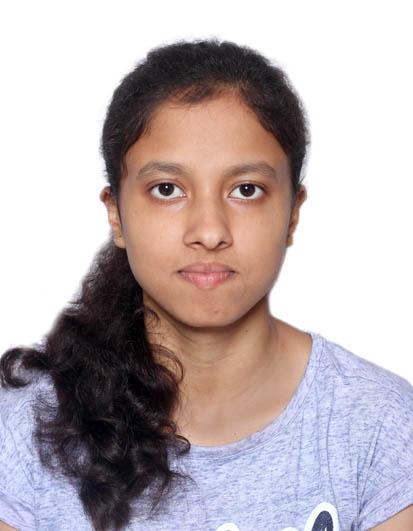Medical career is one of the most lucrative and sought-after career paths. It is a very satisfying career to pursue, as it allows you to help people in need and make a difference in their lives. Medical professionals are well-paid, have job security, and enjoy an excellent work-life balance.
There are many reasons for choosing a career in the medical field. The first is that it is a relatively stable industry with a large need for qualified professionals. Second, it is an exciting and rewarding career. Third, it can be lucrative and financially rewarding.
Medical career is one of the most popular options for students who want to pursue an education after high school. There are many different types of medical careers that you can choose from – from becoming a doctor or nurse to working in research or public health administration.

Table of Contents
Scope of Career in Medical
Medical careers are in high demand and the scope is huge. It’s a field that offers many different career paths, from research to clinical work, and there are plenty of opportunities for specialization. It is a career that requires dedication, hard work, and compassion.
A medical career can be challenging but it offers a unique opportunity to make a difference in people’s lives. The medical field offers an opportunity to do many things like research, teach, or even become involved with politics.
Top Career Options in Medical
- Dentist
Dentists focus on general oral health by preventing, diagnosing, and treating issues with their patients’ teeth and gums. Dentists can recognize and diagnose general and particular oral problems, allowing them to treat patients appropriately. In their offices, they may fill cavities and remove teeth, and many dentists even do oral surgery.
- Pharmacist
Prescription drugs are dispensed and distributed by pharmacists to medical institutions and individuals. They check prescriptions for correctness, assess patients’ medication responses, and collaborate with other healthcare experts to plan and monitor a medicine’s success for their patients. Many pharmacists will also prescribe over-the-counter medications to their patients to treat and control symptoms.
- Registered nurses
Most of nursing care for patients in physician’s offices, clinics, and hospitals is provided by registered nurses. They are responsible for arranging and delivering patient care, as well as giving information and emotional support to patients’ family. They may also serve as a liaison between the patient and other medical personnel.
- Audiologist
Audiologists are experts in ear problems such as hearing loss and balance problems. They see patients with a wide range of hearing difficulties, including the elderly and those who have lost their hearing due to disease or accident. Their responsibilities include administering tests to assess their patients’ ability to hear and discriminate tones, diagnosing problems, and working with other medical personnel to handle the prescription and installation of cochlear implants.
- Physical therapist
A physical therapist assists patients in regaining mobility and function after an accident or illness. They use stretches and exercises to assist their patients increase their mobility and lessen discomfort. Their tasks include patient consultation, exercise instruction, and therapeutic massage of damaged regions.
Trying to find out what career fits your interests in the medical field? Speak with a Gyaannirudra’s expert career counsellor for personalized step-by-step advice on your career exploration journey.

Top institutions in the medical field
Source: Shiksha
There are around 700 famous medical schools in India that offer MBBS, BDS, Pharmacy, Nursing, and other relevant Medical and Paramedical degrees. While the government controls 39 percent of medical colleges in India, private ownership accounts for around 61 percent.
Students who have completed the Class 12 Board exam in the Science stream with Physics, Chemistry, and Biology (PCB) as core subjects are eligible to enter undergraduate medical education. Students must have completed a medical or associated course with a mandatory internship before enrolling in postgraduate studies. Undergraduate medical education typically last four to five years, whereas postgraduate medical studies last three years.
NEET UG scores are acceptable for undergraduate medical programmes such as MBBS, BDS, BAMS, BUMS, and BSc (Hons.) Nursing. Entrance examinations such as AP NEET, SAAT, and others are approved for various specialisations such as Pharmacy. Most of the top medical colleges in India are located in Delhi/NCR, Tamil Nadu, Karnataka, Maharashtra, and Uttar Pradesh.
The following are the fundamental qualifying criteria for top Indian medical colleges:
- Candidates must have completed Class 12 in Science (PCB)
- They must get a minimum aggregate of 50% or an equal CGPA aggregate (45 percent in case of reserved category candidates).
- They must be 17 years old as of December 31st of the admittance year.
- Candidates should be Indian citizens or Overseas Citizens of India (OC) or Parents of India Origin (PIOs)
Top Medical Colleges in India as per NIRF
Every year, the Ministry of Education’s National Institutional Ranking Framework (NIRF) ranks institutes across multiple streams, including Medicine, based on multiple parameters such as Teaching, Learning and Resources (TLR), Research and Professional Practice (RP), Graduation Outcomes (GO), Outreach and Inclusivity (OI), and Peer Perception. Every year, the top 100 Medical Institutes are rated using these criteria.
The top ten medical colleges in India are included in the table below:
| Colleges | NIRF 2020 | NIRF 2021 | NIRF 2022 |
| AIIMS, New Delhi | 1 | 1 | 1 |
| Postgraduate Institute of Medical Education and Research, (PGIMER) Chandigarh | 2 | 2 | 2 |
| Christian Medical College, Vellore | 3 | 3 | 3 |
| National Institute of Mental Health and Neurosciences, (NIMHANS) Bangalore | 4 | 4 | 4 |
| Sanjay Gandhi Postgraduate Institute of Medical Sciences, (SGPGIMS) Lucknow | 5 | 5 | 7 |
| Institute of Medical Sciences, (IMS-BHU), Varanasi | 6 | 7 | 5 |
| Amrita Vishwa Vidyapeetham, (Amrita University) Coimbatore | 7 | 6 | 8 |
| JIPMER, Puducherry | 8 | 8 | 6 |
| Kasturba Medical College, (KMC) Manipal | 9 | 10 | 10 |
| King George’s Medical University, (KGMU) Lucknow | 10 | 9 | 11 |
Medical career in Abroad
Medicine is one of the most in-demand professions in the world. For ages, it has been a highly esteemed and well-known profession. Medical careers are unquestionably diverse. It is divided into two categories:
1) Traditional Medicine and
2) Modern Medicine.
Ayurvedic, homeopathic, and other forms of traditional medicine are common. While Allopathic medicine is a western treatment. Medical universities all across the world educate students in either Traditional or Modern Medicine, or both. However, before enrolling in higher education, students must extensively research the courses provided by the institution to ensure that they are prepared to embark on their medical path.
Studying MBBS Abroad is one of the finest options for Indian medical students who want to advance their careers and become exceptional doctors. In addition to the traditional functions and responsibilities of a doctor, there are other different career paths accessible to medical students. This reduces the stress on graduate medical students who want to pursue a job outside of medicine.
Opportunities for Medical Students after Studying MBBS Abroad
- Job Safety
Being a doctor, unlike any other employment on the market, provides a high level of job security. Even while competition is fierce in the medical industry, as it is in any other, doctors are rarely seen struggling to keep their jobs. They have the option of running their own clinic in addition to working as ordinary doctors at hospitals.
- Progression in Your Career
One of the best things about studying medicine is that it allows students to focus their careers on what they are passionate about. Aside from becoming a doctor who serves the public, medical graduates might pursue a variety of additional careers such as medical research, hospital administration, and more.
- High employment rate
The growing need for physicians year after year makes it a bit simpler for Indian students to find work after finishing their medical study abroad. A degree in medicine is safe in a career market that might be exceedingly competitive. However, in order to operate as qualified medical practitioners, Indian students must pass the FMGE.

Conclusion
An MBBS doctor has advantages in both the private and public sectors. Along with a good salary, one obtains respect and recognition for their abilities. India is constantly improving and placing a specific emphasis on healthcare amenities. Services such as the ‘Air Dispensary,’ which is operated in helicopters; national immunization programs to improve the health of the rural masses; the National Nutrition Mission (NNM), and many other developments in the country necessitate increased participation of doctors who are willing to work outside of hospitals.
Studying MBBS Abroad not only provides medical students the opportunity to become general physician, but it also shapes students to become better people who can lead successful lives. Students who study MBBS abroad receive valuable information and perspective on their medical careers. It also permits students to follow numerous job paths after receiving their MBBS degree.
Want to know more about making a great and rewarding career in the field of medical and allied domains, Click here to Book your FREE Consultation Call with our Head Mentor
In case, if you feel that we have missed something important in this article and needs to be included for its betterment, feel free to share your suggestions with us through comments or mail us at rudrasupport@gyaannirudra.com.
Stay connected with us to be aware about the different career or business opportunities in other fields as well.
Wishing you all a splendid and exponentially growing career journey ahead.

She is a biotechnology graduate trying to flourish her career in management. She also possesss great skills in designing.


